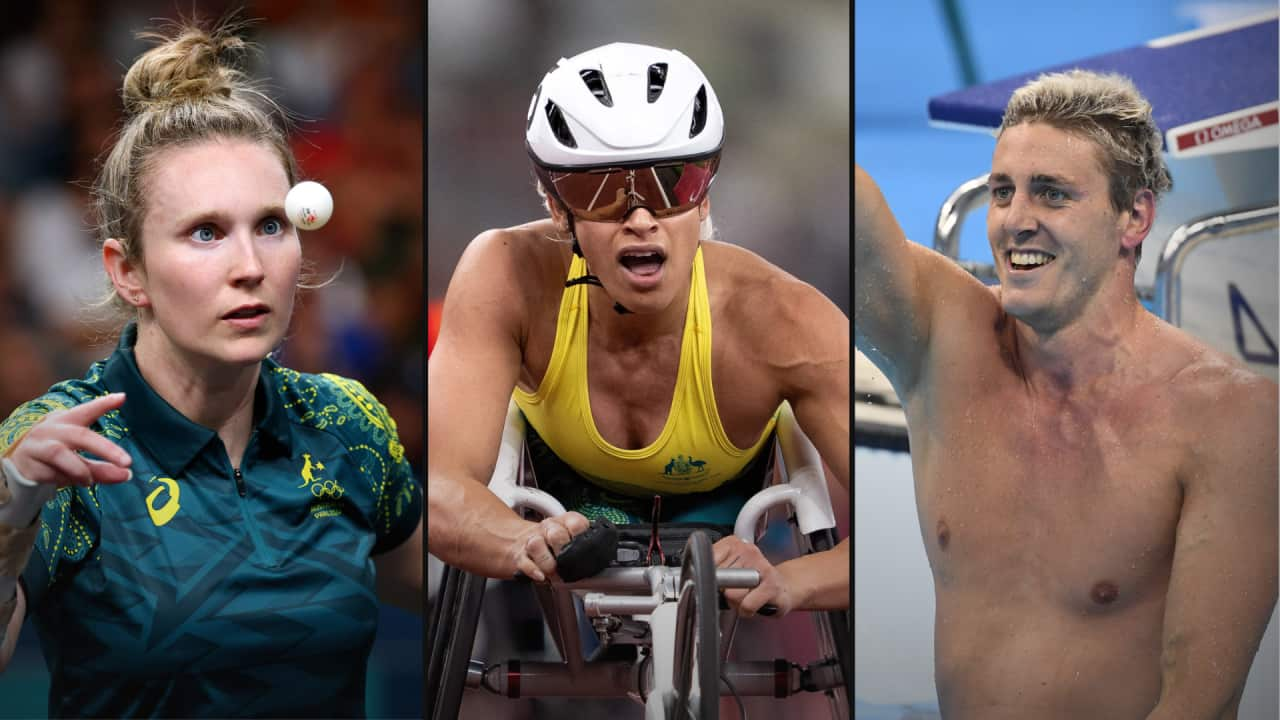Gymnastics, boxing, and water polo are just a few of the Olympic sports that don't feature in the Paralympics.
But were you aware there are also Paralympic disciplines that don't have Olympic equivalents?
Here's what you need to know about the sports that are unique to , and the Australians competing in them.
Boccia
The Confédération Mondiale des Sports de Boules (CMSB), the governing body for boules sports, has made several attempts since the 1980s to get the sport added to the Olympics.
But not even France's passion for pétanque — one form of boules — could convince the International Olympic Committee to include it in the Paris 2024 Games.
Boccia, another type of boules, however, has been a feature of the Paralympics since 1984.
It was originally developed for people with cerebral palsy, but can now be played at a professional level by those with any disability that affects their motor function.

Australia's Daniel Michel won a bronze medal in boccia at the Tokyo Paralympics. Source: Getty / Koki Nagahama
Individual and pair matches have four rounds or 'ends', while those played in teams of three have six.
Until this year, Australia had only ever won two Paralympic medals in boccia — with bronzes in 1996 in Atlanta and 2021 in Tokyo.
That record has improved at this year's Paris Paralympic Games, with Daniel Michel and Jamieson Leeson both winning silver in their respective men's and women's BC3 events. Leeson has made history as the first Australian woman to win a boccia medal in the Paralympics.
Michel and Leeson will also be competing together in the BC3 pairs, and, as world No. 1s, are the hot favourites to win.
Joining Michel and Leeson in Paris are their respective ramp operators, Ashlee Maddern and Jasmine Haydon.

Australian boccia players Daniel Michel (left), and Jamieson Leeson (right) have both won individual silver medals in Paris, and are favourites to win when they compete together in the BC3 pairs event. Source: AAP / Bianca de Marchi
Goalball
Originally invented in 1946 for veterans who lost their sight during World War Two, goalball is an indoor team sport played by athletes who are blind or have low vision.
Two teams of three compete on a volleyball-sized court, taking turns to roll a ball into a nine-metre goal while opposing players try to stop it with their bodies.
For a shot to count, the ball must bounce in the thrower's landing area at least once.

Australia's women's goalball team competed at the Tokyo Paralympics but didn't qualify for Paris. Source: Getty / Alex Pantling
Each match is divided into two 12-minute halves, during which spectators aren't allowed to make any noise so players can hear the ball's movements.
Goalball made its Paralympic debut in Toronto in 1976 with the men's competition before the women's event was added at the 1984 Games in New York.
With three gold, six silver, and three bronze medals, the United States is the most decorated nation in the sport.
Australia has never won a Paralympic medal for goalball and doesn't have a men's or women's team competing in Paris.
The last time an Australian men's team qualified was in 2000 in Sydney, while our women last took part in Tokyo.










